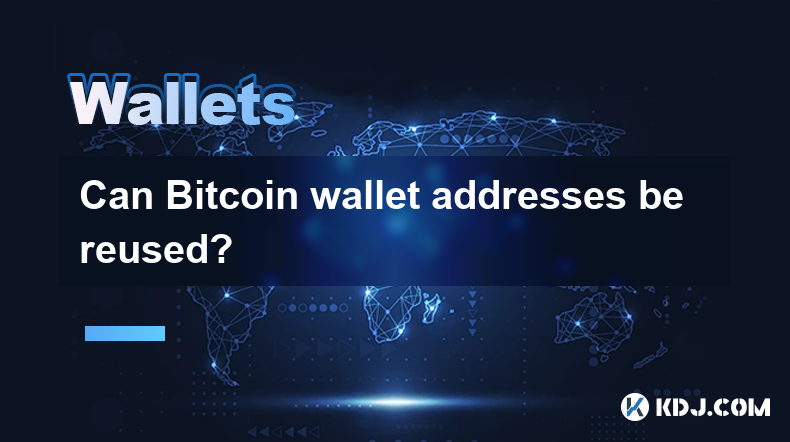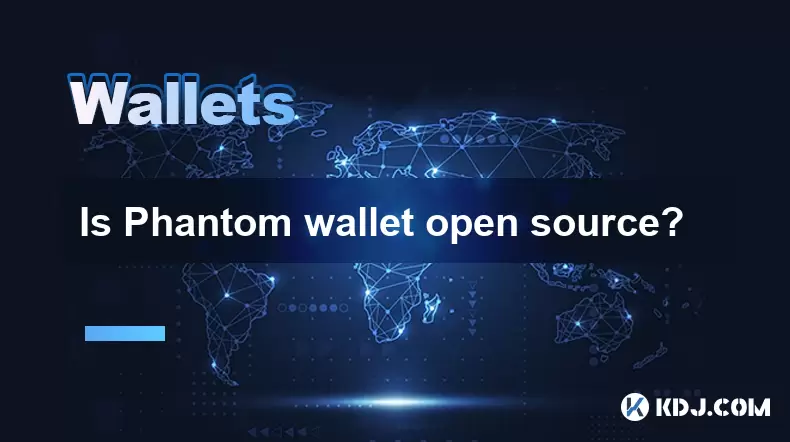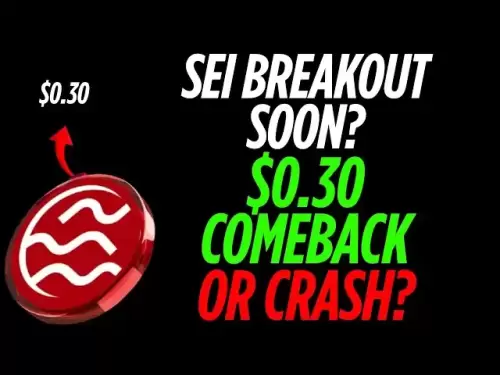-
 Bitcoin
Bitcoin $109,583.2239
0.19% -
 Ethereum
Ethereum $2,583.4612
0.48% -
 Tether USDt
Tether USDt $1.0003
-0.04% -
 XRP
XRP $2.2681
0.70% -
 BNB
BNB $659.9218
-0.52% -
 Solana
Solana $151.4961
-0.37% -
 USDC
USDC $0.9999
-0.02% -
 TRON
TRON $0.2861
1.20% -
 Dogecoin
Dogecoin $0.1718
0.04% -
 Cardano
Cardano $0.5960
-0.07% -
 Hyperliquid
Hyperliquid $40.1233
2.85% -
 Sui
Sui $2.9974
2.48% -
 Bitcoin Cash
Bitcoin Cash $497.1279
-1.76% -
 Chainlink
Chainlink $13.7275
-0.22% -
 UNUS SED LEO
UNUS SED LEO $9.0241
0.70% -
 Avalanche
Avalanche $18.5536
-0.88% -
 Stellar
Stellar $0.2421
1.39% -
 Toncoin
Toncoin $2.8593
-0.51% -
 Shiba Inu
Shiba Inu $0.0...01187
-0.07% -
 Litecoin
Litecoin $90.0023
2.90% -
 Hedera
Hedera $0.1590
2.79% -
 Monero
Monero $322.1495
0.00% -
 Polkadot
Polkadot $3.5453
-1.00% -
 Dai
Dai $1.0000
-0.01% -
 Bitget Token
Bitget Token $4.5733
-1.06% -
 Ethena USDe
Ethena USDe $1.0002
-0.01% -
 Uniswap
Uniswap $7.6345
3.03% -
 Aave
Aave $279.2583
0.47% -
 Pepe
Pepe $0.0...01003
-1.52% -
 Pi
Pi $0.4941
-0.32%
Can Bitcoin wallet addresses be reused?
Reusing Bitcoin addresses compromises privacy and security by making transactions traceable on the public blockchain. While technically possible, using a new address for each transaction is recommended for enhanced anonymity and security, though managing multiple addresses can be cumbersome.
Mar 17, 2025 at 02:20 am

Key Points:
- Bitcoin wallet addresses are reusable, but doing so compromises privacy and security.
- Reusing addresses makes it easier to track your transactions and potentially link them to your identity.
- Using a new address for each transaction enhances anonymity and security.
- There are practical considerations and trade-offs involved in address reuse.
- Tools and techniques exist to mitigate the risks associated with address reuse.
Can Bitcoin Wallet Addresses Be Reused?
Yes, Bitcoin wallet addresses can be reused. However, while technically possible, reusing addresses is generally discouraged due to significant privacy and security implications. Bitcoin's underlying technology, the blockchain, is a public ledger. Every transaction, including the sending and receiving addresses, is recorded permanently and publicly viewable. Reusing an address makes it easier for anyone to link multiple transactions to a single entity, potentially compromising your anonymity.
The primary concern with reusing Bitcoin addresses is privacy. Each transaction associated with an address is visible on the blockchain. If you reuse an address, anyone can see the total amount received at that address, potentially revealing information about your overall holdings or spending habits. This aggregated data could make you a target for theft or other malicious activities.
Furthermore, reusing an address increases the risk of accidental double-spending. If you accidentally send Bitcoin to an address you've already used, you might inadvertently mix your funds with previous transactions. This can complicate recovery and potentially lead to the loss of funds. While not impossible to recover, it adds a layer of complexity to an already intricate system.
The level of risk associated with reusing addresses depends on several factors. If you only use the address for small, infrequent transactions, the risk is relatively low. However, if you're dealing with large sums of money or frequent transactions, the privacy implications become far more significant. Consider the potential for associating your address with your online identity.
While the technical possibility of reusing addresses exists, the benefits rarely outweigh the risks. The added convenience of using a single address is far outweighed by the potential loss of privacy and security. The blockchain's permanence means that every transaction linked to an address remains visible indefinitely.
Many wallets automatically generate a new address for each incoming transaction. This is a best practice that significantly enhances your privacy and security. If your wallet doesn't do this automatically, you should manually create a new address for every transaction to minimize the risks. This practice ensures each transaction is isolated and harder to link to your identity or other transactions.
However, managing multiple addresses can be cumbersome. Some users might find it inconvenient to create and track numerous addresses. There are tools and strategies that can help mitigate the risks of address reuse without requiring the management of numerous addresses. These tools often employ techniques such as coin control or address grouping to improve privacy while still utilizing a smaller number of addresses.
One strategy to manage the complexity is using a hierarchical deterministic (HD) wallet. HD wallets generate a tree of addresses from a single seed phrase. This allows you to generate many addresses without having to manage each one individually. While you might still reuse addresses under the hood, the resulting public addresses appear unique, improving privacy.
Another method involves using a mixing service, also known as a tumbler. These services pool together Bitcoin from multiple users, making it extremely difficult to trace the origin of any specific coins. However, using mixing services carries its own set of risks, including the possibility of interacting with malicious actors. Careful research and selection of a reputable service are crucial if you choose to utilize this option.
Ultimately, the decision of whether or not to reuse Bitcoin addresses is a personal one. However, understanding the potential risks and implementing appropriate mitigation strategies is essential to maintaining both privacy and security. While reusing addresses might seem convenient, the long-term consequences of compromised privacy and increased vulnerability to theft often outweigh any perceived advantages.
Frequently Asked Questions:
Q: What happens if I accidentally reuse a Bitcoin address?
A: Accidentally reusing a Bitcoin address doesn't immediately result in a loss of funds. However, it compromises your privacy and makes it easier to track your transactions. The risk increases with the value and frequency of transactions associated with the reused address.
Q: Can I reuse a Bitcoin address after a long period?
A: Yes, you can, but the privacy implications remain the same. The length of time between transactions doesn't erase the information on the blockchain. Each transaction associated with the address remains permanently linked.
Q: Are there any benefits to reusing Bitcoin addresses?
A: The only potential benefit is convenience, avoiding the need to manage multiple addresses. However, this convenience is significantly outweighed by the risks to privacy and security.
Q: How can I avoid reusing Bitcoin addresses?
A: Use a wallet that automatically generates a new address for each transaction or manually create a new address for each transaction. Consider using an HD wallet to simplify address management while maintaining privacy.
Q: Is it illegal to reuse Bitcoin addresses?
A: Reusing Bitcoin addresses is not illegal. However, it's a practice that compromises privacy and increases security risks. The legality of Bitcoin transactions themselves depends on the jurisdictions involved and the nature of the transaction.
Disclaimer:info@kdj.com
The information provided is not trading advice. kdj.com does not assume any responsibility for any investments made based on the information provided in this article. Cryptocurrencies are highly volatile and it is highly recommended that you invest with caution after thorough research!
If you believe that the content used on this website infringes your copyright, please contact us immediately (info@kdj.com) and we will delete it promptly.
- LUNA Crypto Collapse: From Billions Lost to a Quiet Comeback?
- 2025-07-04 02:35:18
- Briber's Four Forces: Decoding the Dynamics of Crypto Incentives
- 2025-07-04 02:35:18
- Solana DeFi Accumulation: Riding the Wave or Just HODLing On?
- 2025-07-04 02:40:12
- ZKasino's $30M Rug Pull: Founder Arrested in UAE – Justice Served?
- 2025-07-04 00:30:13
- Bitcoin's Bull Run: Standard Chartered and the ETF Inflow Effect
- 2025-07-04 00:30:13
- Bitcoin, Crypto, and Market Sentiment: Riding the Bullish Wave?
- 2025-07-04 01:10:12
Related knowledge

How to cancel a pending transaction in Phantom wallet?
Jul 03,2025 at 07:21pm
Understanding Pending Transactions in Phantom WalletA pending transaction in the Phantom wallet occurs when a user initiates a transfer or interaction with the Solana blockchain, but it hasn't yet been confirmed by the network. This can happen due to various reasons such as low transaction fees, network congestion, or incorrect gas settings. It's import...

How to see the estimated value of my tokens in Phantom wallet?
Jul 04,2025 at 12:21am
What is Phantom Wallet?Phantom wallet is one of the most popular cryptocurrency wallets designed for the Solana blockchain. It allows users to store, send, receive, and manage various tokens built on Solana, including SPL tokens and NFTs. The wallet offers a user-friendly interface, making it accessible for both beginners and advanced users in the crypt...

How to lock my Phantom wallet extension?
Jul 03,2025 at 11:14am
What Is the Phantom Wallet and Why Lock It?The Phantom wallet is a popular non-custodial cryptocurrency wallet designed for interacting with the Solana blockchain. Supporting both browser extensions and mobile apps, Phantom allows users to store, send, receive, and stake SOL tokens, as well as interact with decentralized applications (dApps). Securing y...

Does Phantom wallet offer two-factor authentication (2FA)?
Jul 03,2025 at 09:00am
Understanding Phantom Wallet and Its Security FeaturesPhantom wallet is a widely used non-custodial cryptocurrency wallet that supports the Solana blockchain. It allows users to store, send, receive, and interact with decentralized applications (dApps) seamlessly. As security is a top priority for any crypto wallet user, security features like two-facto...

What is "rent" on Solana and how does it affect my Phantom wallet?
Jul 02,2025 at 08:35pm
Understanding 'Rent' on SolanaIn the context of Solana, the term 'rent' refers to a storage fee that users pay for maintaining data on the blockchain. Unlike Ethereum, where storage costs are paid once via gas fees during contract deployment, Solana implements a recurring cost model to ensure efficient usage of network resources. This means that any acc...

Is Phantom wallet open source?
Jul 03,2025 at 12:29am
What is Phantom Wallet?Phantom wallet is a non-custodial cryptocurrency wallet primarily designed for the Solana blockchain. It allows users to store, send, receive, and interact with decentralized applications (dApps) on the Solana network. The wallet is available as a browser extension and mobile application, offering a seamless experience for both be...

How to cancel a pending transaction in Phantom wallet?
Jul 03,2025 at 07:21pm
Understanding Pending Transactions in Phantom WalletA pending transaction in the Phantom wallet occurs when a user initiates a transfer or interaction with the Solana blockchain, but it hasn't yet been confirmed by the network. This can happen due to various reasons such as low transaction fees, network congestion, or incorrect gas settings. It's import...

How to see the estimated value of my tokens in Phantom wallet?
Jul 04,2025 at 12:21am
What is Phantom Wallet?Phantom wallet is one of the most popular cryptocurrency wallets designed for the Solana blockchain. It allows users to store, send, receive, and manage various tokens built on Solana, including SPL tokens and NFTs. The wallet offers a user-friendly interface, making it accessible for both beginners and advanced users in the crypt...

How to lock my Phantom wallet extension?
Jul 03,2025 at 11:14am
What Is the Phantom Wallet and Why Lock It?The Phantom wallet is a popular non-custodial cryptocurrency wallet designed for interacting with the Solana blockchain. Supporting both browser extensions and mobile apps, Phantom allows users to store, send, receive, and stake SOL tokens, as well as interact with decentralized applications (dApps). Securing y...

Does Phantom wallet offer two-factor authentication (2FA)?
Jul 03,2025 at 09:00am
Understanding Phantom Wallet and Its Security FeaturesPhantom wallet is a widely used non-custodial cryptocurrency wallet that supports the Solana blockchain. It allows users to store, send, receive, and interact with decentralized applications (dApps) seamlessly. As security is a top priority for any crypto wallet user, security features like two-facto...

What is "rent" on Solana and how does it affect my Phantom wallet?
Jul 02,2025 at 08:35pm
Understanding 'Rent' on SolanaIn the context of Solana, the term 'rent' refers to a storage fee that users pay for maintaining data on the blockchain. Unlike Ethereum, where storage costs are paid once via gas fees during contract deployment, Solana implements a recurring cost model to ensure efficient usage of network resources. This means that any acc...

Is Phantom wallet open source?
Jul 03,2025 at 12:29am
What is Phantom Wallet?Phantom wallet is a non-custodial cryptocurrency wallet primarily designed for the Solana blockchain. It allows users to store, send, receive, and interact with decentralized applications (dApps) on the Solana network. The wallet is available as a browser extension and mobile application, offering a seamless experience for both be...
See all articles

























































































